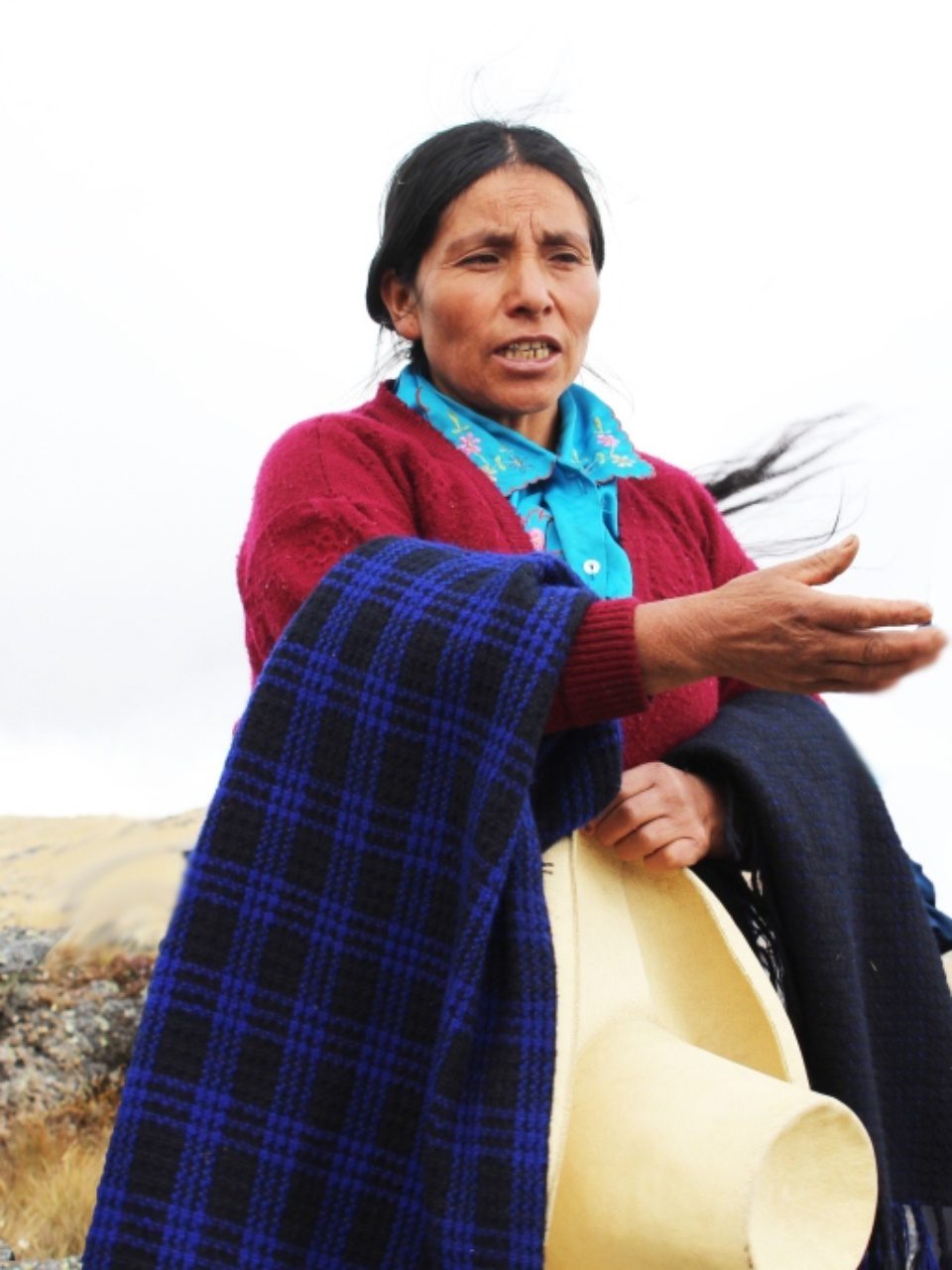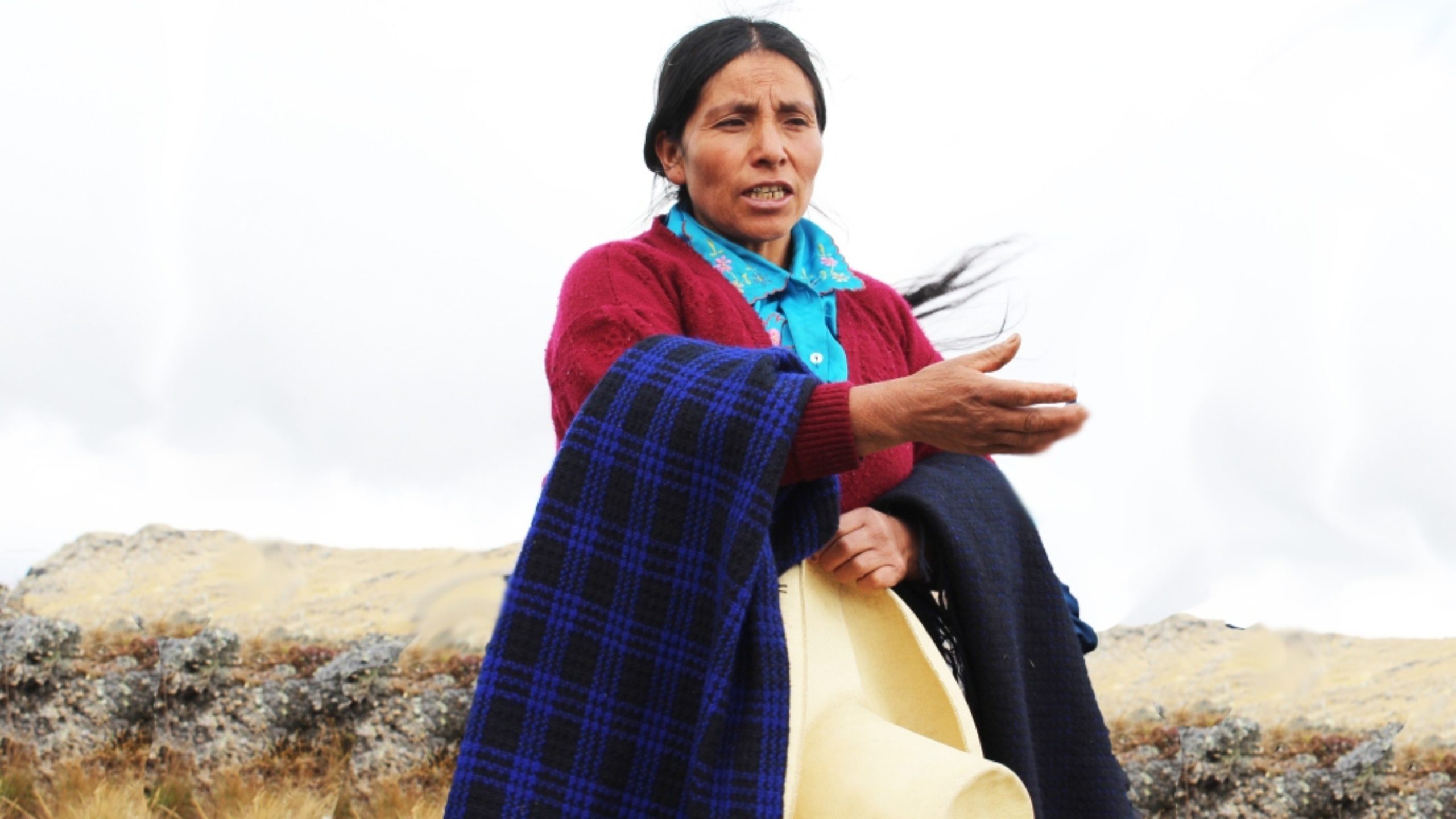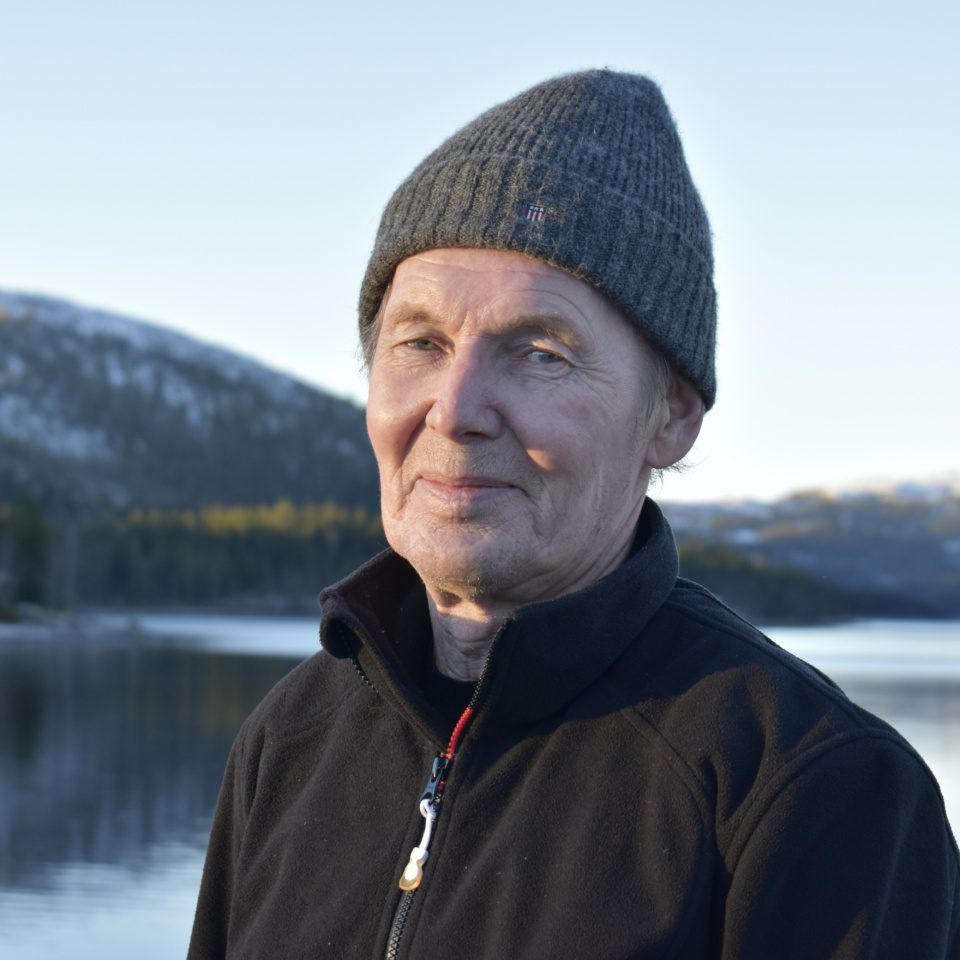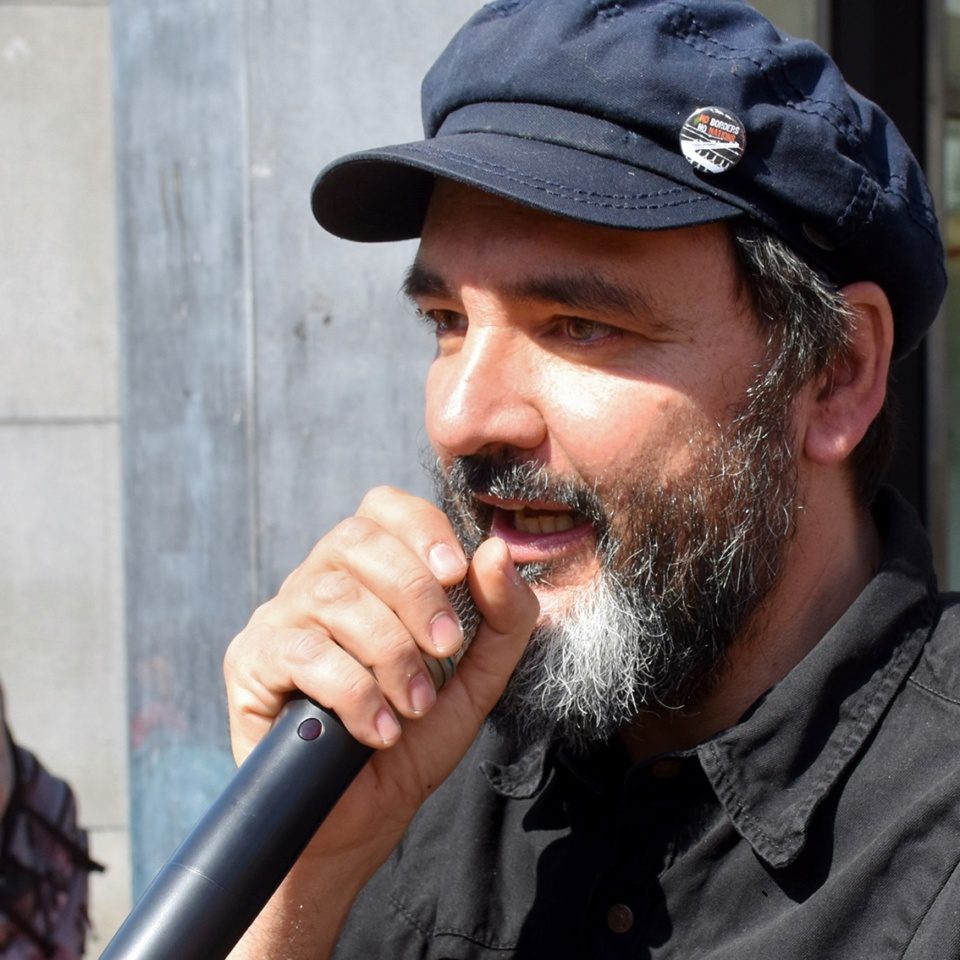Peruvian smallholder Máxima Acuña de Chaupe fights tirelessly for her land. Since 2011, the largest Peruvian gold producer, Yanacocha, has been trying to take her property away from her. In August 2016, a local court declared Máxima and her family guilty of taking possession of the land unlawfully. Máxima's struggle has paid off though: in May 2017, she was acquitted.
The 47-year-old smallholder Máxima Acuña de Chaupe and her relatives are exhausted: from 2011 to 2017, they have been repeatedly threatened, intimidated and even violently attacked by staff from the firm Yanacocha and by the Peruvian police. "They insulted, beat and mistreated us, and even threatened us with death!" recounts the Peruvian. In addition, the Chaupe family has had to fight Yanacocha in court for the past three years. The family members had to endure questioning for days at a time and listen to allegations from the gold mining firm's solicitors. The struggle has paid off though: in spring 2017, Máxima Acuña de Chaupe was acquitted.
Long-running dispute over land rights
The conflict between Máxima Acuña de Chaupe and the mining company Yanacocha S.R.L. was about a parcel of land in the Peruvian Highlands, which both the Acuña de Chaupe family and the firm Yanacocha, operator of the largest gold mine in South America, claimed to own. Both sides asserted that they held a valid title deed for this parcel. This plot of land was strategically important to Yanacocha because it lies in the middle of an area where a new mine is planned. Due to massive protests by the local population and various non-governmental organisations, the project was put on hold, but the dispute over land rights continued for a long time afterwards. In connection with this, the national police, operating on behalf of the firm, as well as staff from Yanacocha S.R.L., repeatedly harassed and attacked Máxima Acuña de Chaupe's family, whose dwelling and fields had already been destroyed many times over.
Gold giant sues smallholder
In 2011, the mining company brought charges against Máxima and her family because the family did not want to leave land that was legally theirs for the benefit of a new gold mine. The shocking court verdict came in mid-August: Máxima, her husband, her daughter and her brother-in-law were given a conditional prison sentence of two years and eight months, fined 1900 dollars and ordered to vacate the property. The Chaupe family was blamed for having taken possession of the land unlawfully. Although Máxima was acquitted in 2014, the gold giant Yanacocha lodged an appeal. The Chaupe family did not give up. "The mistreatment and cruelty that we are experiencing at the hands of Yanacocha bolsters my will and gives me more strength, to fight for our rights incessantly," said the farmer during the past years' struggle. This has now paid off: in mid-March 2017, the Supreme Court announced that it would review the case. On the 3rd of May 2017, it issued the definitive verdict: Maximal Acuña de Chaupe and her family were acquitted. The Supreme Court thus confirmed the second court verdict from 2014, which had already rejected the charge of land grabbing. However, this farming family cannot quite breathe a sigh of relief just yet, as it still has to go through a number of lesser court cases.
In September 2017, Máxima Acuña de Chaupe and her family together with EarthRights International (ERI) filed a lawsuit in the Federal Court in Delaware (USA) against the US mining company Newmont Mining Corporation. The company is the majority shareholder of Yanacocha. The lawsuit met with resistance even before it was dealt with: The US court initially followed the recommendation of the Newmont Mining Corporation and dismissed the case despite evidence of corruption by the Peruvian courts against Peru. With the support of EarthRights International, Máxima appealed this decision - with success: At the end of March 2019 the case was returned to the competent US district court and the judge was ordered to review the evidence of corruption within the Peruvian judiciary. A big win for Máxima!
Furthermore, in 2016, Máxima received the Goldman prize for her environmental commitment.



